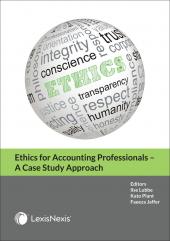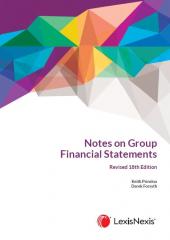Ethics for Accounting Professionals
This book provides guidelines and tools for discussions on ethics (personal, business and professional) within the South African educational environment.
One Year Subscription Only Terms
Subscribers receive the product(s) listed on the Order Form and any Updates made available during the annual subscription period. Shipping and handling fees are not included in the annual price.
Subscribers are advised of the number of Updates that were made to the particular publication the prior year. The number of Updates may vary due to developments in the law and other publishing issues, but subscribers may use this as a rough estimate of future shipments. Subscribers may call Customer Support at 800-833-9844 for additional information.
Subscribers may cancel this subscription by: calling Customer Support at 800-833-9844; emailing customer.support@lexisnexis.com; or returning the invoice marked 'CANCEL'.
If subscribers cancel within 30 days after the product is ordered or received and return the product at their expense, then they will receive a full credit of the price for the annual subscription.
If subscribers cancel between 31 and 60 days after the invoice date and return the product at their expense, then they will receive a 5/6th credit of the price for the annual subscription. No credit will be given for cancellations more than 60 days after the invoice date. To receive any credit, subscriber must return all product(s) shipped during the year at their expense within the applicable cancellation period listed above.
Product description
This book provides guidelines and tools for discussions on ethics (personal, business and professional) within the South African educational environment.
Professional accountants and auditors are bound by a code of conduct and face ethical dilemmas and conflicts on a daily basis. A mere awareness of the ethical rules of the profession does not, however, ensure ethical behaviour. In this textbook theory meets practice: it familiarises students with the ethical framework applicable to the accounting profession and illustrates how to apply these principles in decision-making through a series of original case studies, set within the South African environment. The worked scenarios vary in complexity and a thorough grasp of the field is facilitated by systematically identifying challenges, applying reasoning processes and analysing courses of action in each set of facts



